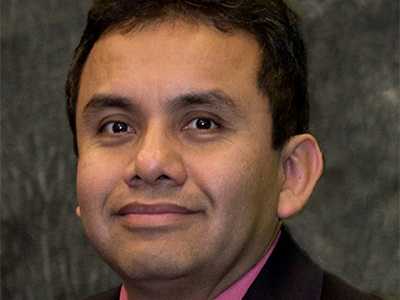What good is data if you can’t understand how it impacts the world? Since 2014, with DWFI’s support, Francisco Munoz-Arriola has worked to use data in new ways to understand surface water and groundwater systems. His work is helping to create water for food management paradigms that can lead to greater productivity and efficiency within the nuanced water/food/energy nexus.
Munoz-Arriola’s work is critical not only to help researchers and producers better understand data in general but also more specifically as a programmatic foundation that can enhance any water for food project that relies on data. His team has created and implemented models that assess both natural and built environments to make diagnostic systems more sustainable and secure. In other words, better data makes for more reliable water for food technologies.
“The most interesting part of this research,” said Munoz-Arriola, “is the possibility of simplifying the complexity of the environment.”
In addition to his numerous publications and projects, Muñoz- Arriola is a sought-after professor and advisor for graduate students. He has advised multiple doctoral students and serves as a faculty mentor for the WARI and Cultivate Access programs, helping to cultivate the next generation of water experts.
In recent years, artificial intelligence (AI) has added an amazing new layer to this work. Munoz-Arriola and his team used AI to propose new ways of improving groundwater forecasts around the world. This includes developing methods of identifying and reducing uncertain predictions of water availability, as well as predicting resilience in groundwater systems. Projects completed by Munoz-Arriola in the last decade allow agricultural decision makers to more easily upload, transform, store and analyze data to improve decision making and predictions.
Munoz-Arriola is particularly excited about the potential of using AI to predict shifts in groundwater and surface water systems as they respond to climate change – a completely new challenge for his next decade of research.


